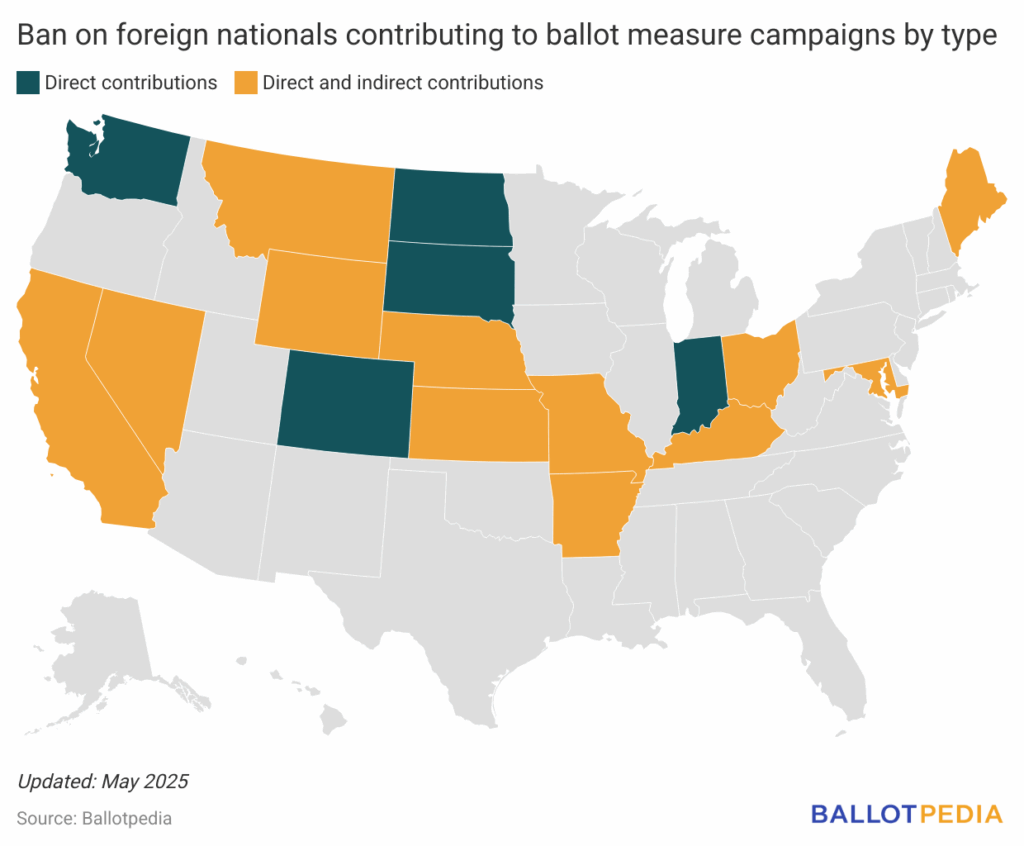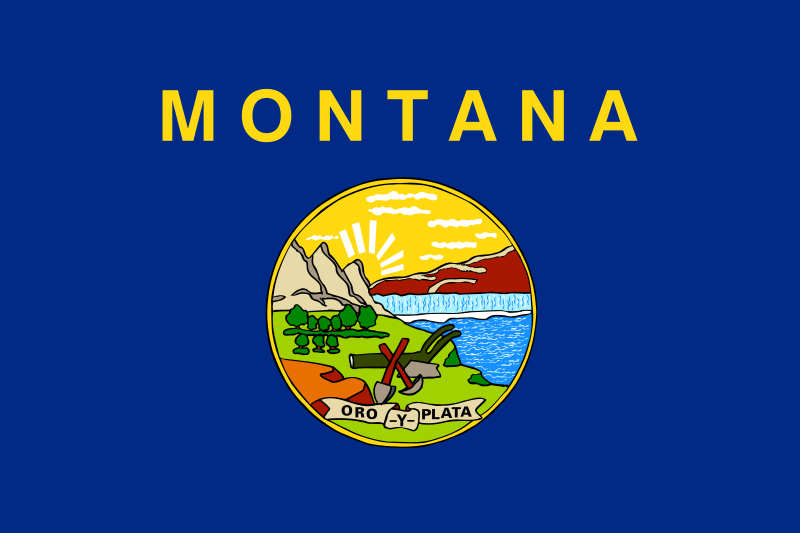Gov. Greg Gianforte (R) signed House Bill 818 on May 13, making Montana the sixth state in 2025 to adopt a ban on foreign spending in ballot measure campaigns. Montana joins five other states that adopted bans this year—Arkansas, Indiana, Kansas, Kentucky, and Wyoming—and ten states that passed similar laws in prior years, bringing the total to 16.
The issue of foreign spending in ballot measure campaigns arose in Montana during the 2018 election cycle when an Australian firm, Sandfire Resources, contributed to the opposition campaign of Montana I-186. The contributions resulted in the Federal Election Commission, in a 4-2 decision, affirming that foreign nationals, including individuals, corporations, and governments, could contribute to ballot measure campaigns.
House Bill 818 prohibits foreign nationals from directly or through an intermediary from making a contribution or expenditure in connection with any statewide ballot measure campaign. The initial version of the bill explicitly prohibited foreign nationals from directly or indirectly contributing to a campaign and did not change the existing statutory definition of foreign national.
The final version of HB 818 defines a foreign national as:
- a non-U.S. citizen or lawful permanent resident,
- foreign government,
- foreign political party,
- an entity organized under the laws of a foreign country or that has its place of business in a foreign country, and
- any U.S. entity wholly or majority owned by any foreign national, unless:
- the entity's employees pay state income tax and the entity pays state property taxes or
- ballot measure contributions are derived entirely from funds generated by its U.S. operations and are made by individuals who are U.S. citizens or permanent residents.
Most states’ bans apply to non-U.S. citizens, lawful permanent residents, foreign governments, foreign political parties, and foreign companies. Montana is unique in that it exempts certain U.S. entities wholly or majority owned that meet the above criteria.
The state House passed the bill by a vote of 56-44, with all but two Republicans voting in favor of the bill and all Democrats opposing it. It passed in the state Senate by a vote of 37-13, with six Democrats joining 31 Republicans in support, and one Republican voting with the remaining Democrats.
Jason Snead, executive director of Honest Elections Project Action, an organization that supports banning foreign contributions to ballot measure campaigns, issued the following statement before Gov. Gianforte signed the bill: “House Bill 818 was originally intended to protect the integrity of Montana elections by banning foreign influence. Unfortunately, the Montana legislature passed a version of the bill with amendments that leave it substantially weakened. If signed into law, foreign-funded groups like the Sixteen Thirty Fund would remain free to pour millions into state ballot measures, drowning out the will of Montana voters.”
The Sixteen Thirty Fund is a 501(c)(4) nonprofit that donates to projects and campaigns that “are fighting for economic equity, affordable health care, climate solutions, racial justice, voter access, and other essential social-change goals,” according to its website. From 2016 to 2024, Ballotpedia tracked $102 million in contributions from the Sixteen Thirty Fund to 47 state ballot measure campaigns. Since the fund is a 501(c)(4), it is not required to disclose its donors.
Campaign finance rules for ballot measures differ from those for candidate elections. In 1978, the U.S. Supreme Court ruled that spending on ballot measure campaigns is similar to issue advocacy, such as lobbying, in the lawmaking process. In 2012, the Supreme Court affirmed that, under the Federal Election Campaign Act (FECA), foreign nationals were prohibited from making contributions to candidates. However, FECA "does not bar foreign nationals from issue advocacy,” which includes ballot measure campaigns. The Federal Election Commission, following the court's orders, has held that ballot measure campaigns are not regulated under FECA. According to the FEC, since ballot measure campaigns are similar to issue advocacy, foreign individuals, corporations, and governments can contribute to them.
Of the 16 states that have enacted bans, five states have enacted bans on direct contributions, while 11 states have banned direct and indirect contributions from foreign individuals or entities.
Three of the 16 states that enacted laws banning foreign spending on ballot measure campaigns did so through voter-approved ballot measures: Colorado, Maine, and North Dakota. Missouri also passed a ballot measure. However, a federal court ruled Missouri's ban unconstitutional in 2017. On May 15, 2025, the Missouri State Legislature passed Senate Bill 152, which would ban foreign nationals from directly or indirectly contributing to ballot measure campaigns. The bill is awaiting the governor's signature.




